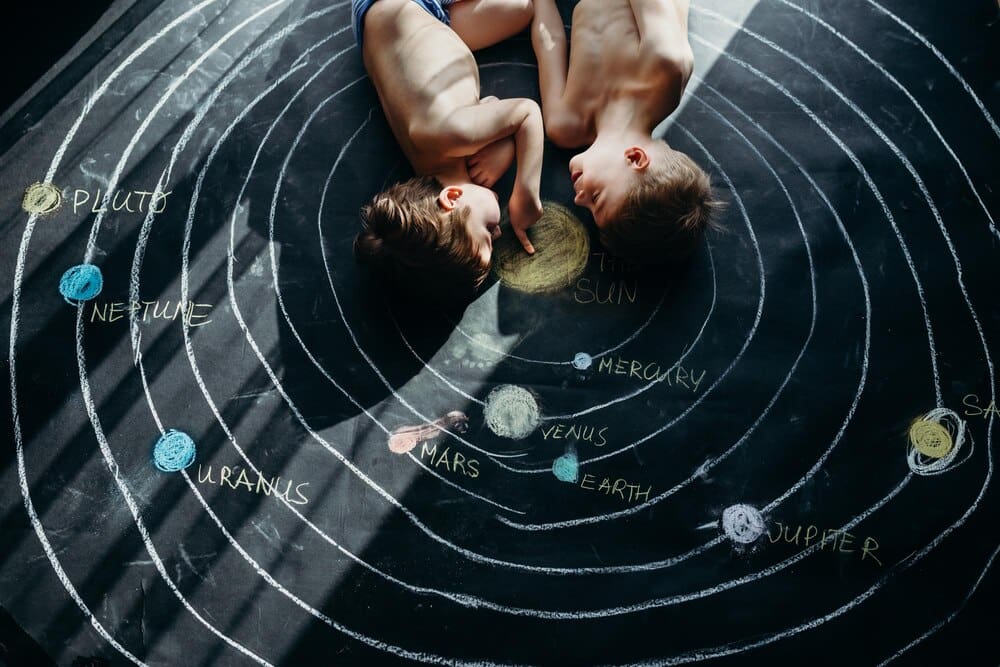In the intricate cosmos of Vedic Astrology, a planet’s power is not absolute but is profoundly influenced by its position within the zodiac. This concept, known as planetary dignity, determines whether a planet acts as a powerful ally or a challenging obstacle in an individual’s life. Understanding the states of Exaltation (Ucha), where a planet reaches its peak performance; Debilitation (Neecha), its point of greatest weakness; and Moolatrikona, its powerful “home office,” is fundamental to accurately interpreting a birth chart and unlocking the quality, strength, and nature of the cosmic energies shaping our destiny.
What is Planetary Dignity?
Think of a planet as a person with a specific job to do. Its dignity describes the environment in which it must work. A planet with high dignity is like a skilled CEO operating from a state-of-the-art headquarters with a supportive team, able to execute their vision flawlessly.
Conversely, a planet with low dignity is like that same CEO trying to work from a chaotic, under-resourced office with uncooperative staff. The inherent potential is still there, but the ability to express it effectively is severely hampered. Dignity, therefore, is the measure of a planet’s functional strength and comfort level within a particular zodiac sign.
This strength directly impacts the areas of life (houses) that the planet rules and the innate qualities (karakatwas) it represents. A strong planet delivers its results with ease and grace, while a weak one can manifest as struggle, frustration, and delay.
The Pinnacle of Power: Exaltation (Ucha)
Exaltation, or Ucha in Sanskrit, represents the zodiac sign where a planet is at its absolute zenith of power. It is the placement where the planet’s energy and the sign’s energy are in perfect, synergistic harmony, allowing the planet to express its highest and most benevolent qualities.
When a planet is exalted in a birth chart, it bestows exceptional results related to its significations. It indicates a natural, high-level talent and the potential for great success and recognition in the areas of life it influences. An exalted planet is a source of immense strength, confidence, and positive fortune.
The Exaltation Points of Each Planet
Each planet has a specific sign and a precise degree within that sign where its exaltation energy is most potent. This is known as the deep exaltation point.
- Sun (Surya): Exalted in Aries, with its deep exaltation point at 10 degrees. This placement bestows leadership, authority, confidence, and vitality.
- Moon (Chandra): Exalted in Taurus, with its deep exaltation point at 3 degrees. This creates emotional stability, nurturing qualities, and an appreciation for luxury and beauty.
- Mars (Mangal): Exalted in Capricorn, with its deep exaltation point at 28 degrees. This grants incredible discipline, strategic thinking, ambition, and the ability to execute complex plans.
- Mercury (Budha): Exalted in its own sign of Virgo, with its deep exaltation point at 15 degrees. This signifies superior intellect, analytical skill, and precision in communication.
- Jupiter (Guru): Exalted in Cancer, with its deep exaltation point at 5 degrees. This is a placement of profound wisdom, compassion, optimism, and spiritual grace.
- Venus (Shukra): Exalted in Pisces, with its deep exaltation point at 27 degrees. This represents unconditional love, refined artistic taste, devotion, and romantic idealism.
- Saturn (Shani): Exalted in Libra, with its deep exaltation point at 20 degrees. This bestows a strong sense of justice, impartiality, diplomacy, and the ability to build lasting structures.
The shadowy nodes, Rahu and Ketu, have debated exaltation signs, with common assignments being Rahu in Taurus or Gemini and Ketu in Scorpio or Sagittarius.
The Point of Weakness: Debilitation (Neecha)
Directly opposite its sign of exaltation lies a planet’s sign of debilitation, or Neecha. This is where a planet is at its weakest, most uncomfortable, and least effective. The energy of the sign is hostile to the planet’s nature, causing it to struggle to express its positive qualities.
A debilitated planet can indicate challenges, insecurities, and negative manifestations related to its portfolio. For example, a debilitated Sun may struggle with confidence, while a debilitated Moon can lead to emotional turmoil. It points to an area of life requiring significant effort and conscious development.
The Debilitation Points of Each Planet
Just as there is a deep exaltation point, there is a deep debilitation point, which is the exact degree of its greatest weakness.
- Sun (Surya): Debilitated in Libra (at 10 degrees). Issues with authority, low self-esteem, and indecisiveness can arise.
- Moon (Chandra): Debilitated in Scorpio (at 3 degrees). This can lead to intense emotional vulnerability, fear, and psychological turmoil.
- Mars (Mangal): Debilitated in Cancer (at 28 degrees). Energy can be misdirected, leading to passive-aggression or emotional volatility instead of direct action.
- Mercury (Budha): Debilitated in Pisces (at 15 degrees). Logic can be clouded by fantasy, leading to unclear communication and impractical decisions.
- Jupiter (Guru): Debilitated in Capricorn (at 5 degrees). Wisdom can become rigid and dogmatic, and optimism may be replaced by materialism or pessimism.
- Venus (Shukra): Debilitated in Virgo (at 27 degrees). Love can become critical and conditional, and the expression of affection may be inhibited.
- Saturn (Shani): Debilitated in Aries (at 20 degrees). The patience and discipline of Saturn are lost in the impulsive energy of Aries, leading to frustration and lack of structure.
The Saving Grace: Neecha Bhanga Raja Yoga
A debilitated planet is not a permanent sentence of failure. Vedic astrology provides a powerful antidote known as Neecha Bhanga Raja Yoga, which translates to the “cancellation of debilitation leading to the status of a king.” This yoga can transform the initial weakness of a debilitated planet into a source of immense and unexpected strength.
This cancellation occurs under specific conditions, such as the ruler of the debilitation sign being in a strong position (like a Kendra house) or aspecting the debilitated planet. When these conditions are met, the individual often faces significant early-life struggles related to the planet but develops incredible resilience, wisdom, and grit in the process.
They overcome their innate challenges to achieve extraordinary success. This yoga is a testament to the astrological principle that our greatest weaknesses, when consciously addressed, can become our most profound strengths.
The Powerhouse Office: Moolatrikona
Between the peak of exaltation and the comfort of its own sign lies a planet’s Moolatrikona, or “root trine” sign. This is a position of immense strength, second only to exaltation. If a planet’s own sign is its home, Moolatrikona is its high-powered office where it is most focused on its work.
A planet in its Moolatrikona sign is intensely focused on expressing its core purpose. The results are powerful, effective, and directed. It is less about personal comfort and more about professional duty and impact. This placement gives a planet the resources and drive to achieve its objectives with great proficiency.
The Moolatrikona Signs and Degrees
Unlike other dignities that cover a whole sign, Moolatrikona strength applies to a specific range of degrees within a sign. The remainder of the sign is considered its Own Sign (Swakshetra).
- Sun: Leo (0-20 degrees)
- Moon: Taurus (4-30 degrees)
- Mars: Aries (0-12 degrees)
- Mercury: Virgo (16-20 degrees)
- Jupiter: Sagittarius (0-10 degrees)
- Venus: Libra (0-15 degrees)
- Saturn: Aquarius (0-20 degrees)
Other Key States of Dignity
Beyond these primary states, other dignities provide further nuance to a chart reading.
Own Sign (Swakshetra)
When a planet is in a sign that it rules, it is in Swakshetra, or its own sign. This is like being comfortable in your own home. The planet is at ease, stable, and gives its natural results in a consistent and positive manner. It provides a solid foundation in the areas of life it governs.
Friendly and Enemy Signs
Planets have natural relationships of friendship, neutrality, and enmity. A planet placed in the sign of a friend feels supported and can function well. Conversely, a planet in an enemy’s sign feels obstructed, agitated, and struggles to deliver positive results, creating conflict and difficulty.
Ultimately, the concept of planetary dignity is a sophisticated tool for moving beyond a simple “good” or “bad” assessment of a planet. It reveals the quality, texture, and functional capacity of a planet’s energy in your life. By understanding where your planets are exalted, debilitated, or strongly placed, you gain profound insight into your natural talents, your areas for growth, and the unique cosmic blueprint that is yours to navigate.








